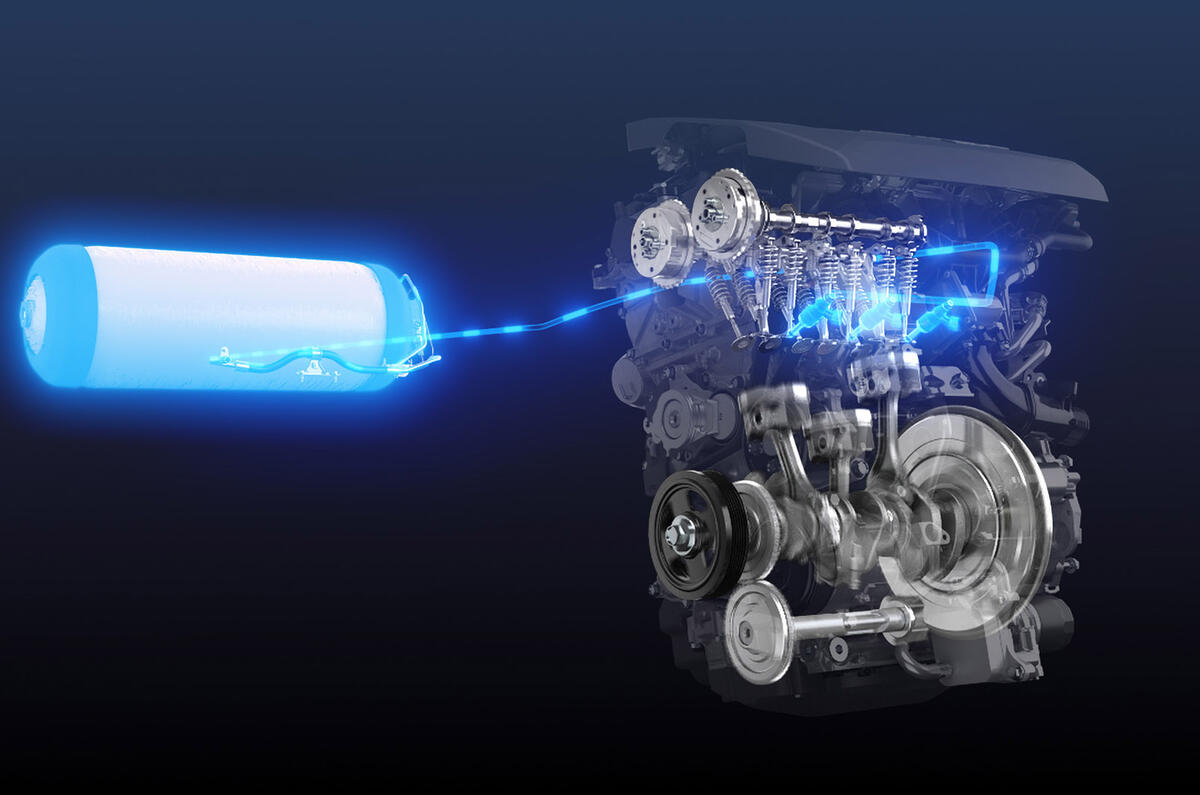Toyota will debut a new hydrogen powertrain in a Japanese Corolla Sport-based race car, in order to test its potential before possibly introducing the technology on its future road models.
The engine, which will be fielded by Toyota’s latest entry, via Orc Rookie Racing, into Japan’s Super Taikuyu endurance racing series, will get its first competitive outing on 21-23 May.
The power plant is a 1618cc unit with three cylinders and is powered by compressed hydrogen fuel. Toyota has used hydrogen in its powertrains before, most famously on the Toyota Mirai. However, that car uses a reaction between hydrogen and oxygen within a fuel cell, which in turn produces electricity to power the engine.
By contrast, the engine previewed in the Super Taikuyu racer uses no electricity; it operates like a combustion engine, and, indeed, uses a fuel supply and injection systems based on petrol engines.
Toyota says that there is an advantage to using hydrogen in this way: namely, combustion in hydrogen engines happens at a faster rate than in petrol engines. According to the Japanese firm, the result of this is especially good engine responsiveness. However, it’s not an entirely emissions-free process as NOx is still produced, unlike in a hydrogen fuel cell.
Toyota has yet to reveal a timetable for when it intends to transfer this technology from its track to its road cars, but its claim that the engine is “developed as part of Toyota’s progress towards realising a carbon-neutral mobility society” suggests that such a move may be on the horizon.
Though an early leader, the Japanese brand is not the only organisation to be investigating hydrogen technology. Last month, the UK government pledged £3 million to create the UK’s first-ever hydrogen transport hub to champion research into the fuel.
Similarly, Hyundai, whose Hyundai Nexo is one of a few hydrogen-powered vehicles currently offered by mainstream brands, recently launched HTWO, a new brand to “help facilitate Hyundai's global fuel cell business and grow the hydrogen ecosystem”.
READ MORE
Toyota's new bZ electric cars will be "a new breed of vehicles"
Toyota bZ4X concept is brand's first bespoke electric car
Toyota Europe CEO on Burnaston's future, European EVs and more





Join the debate
Add your comment
Compared with an ICE, an electric motor is much more efficient, requires much less parts, produces the rotary energy right away without the many mechanical transformations required by an ICE.
Powering ICE with H₂ is an aberration.
Use H₂ for a fuel cell to power electric motors, and in my imagination, with an electric motor for each and every wheel, with electronic torque management by wire from a central computer.
95% of hydrogen made today is derived from fossil fuels, costs more than fossil fuels and a car powered by it pollutes as much as an ICE car. For a hydrogen powered car to be CO2 neutral it would need to run on green hydrogen which at best will cost 3 times more to run than an EV.
I can see some potential for hydrogen enabling a few enthusiasts to continue driving non polluting combustion engine cars, but not for the mass market. If you're going to use hydrogen, a fuel cell is much better because it has a thermal efficiency of better than 50%, more than double that which is possible in a combustion engine. Of course for a racing series efficiency doesn't matter - it's all about the noise and excitement!